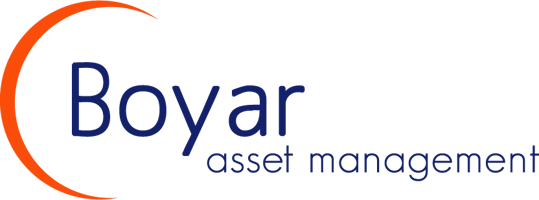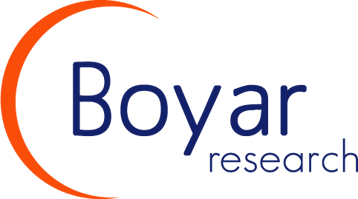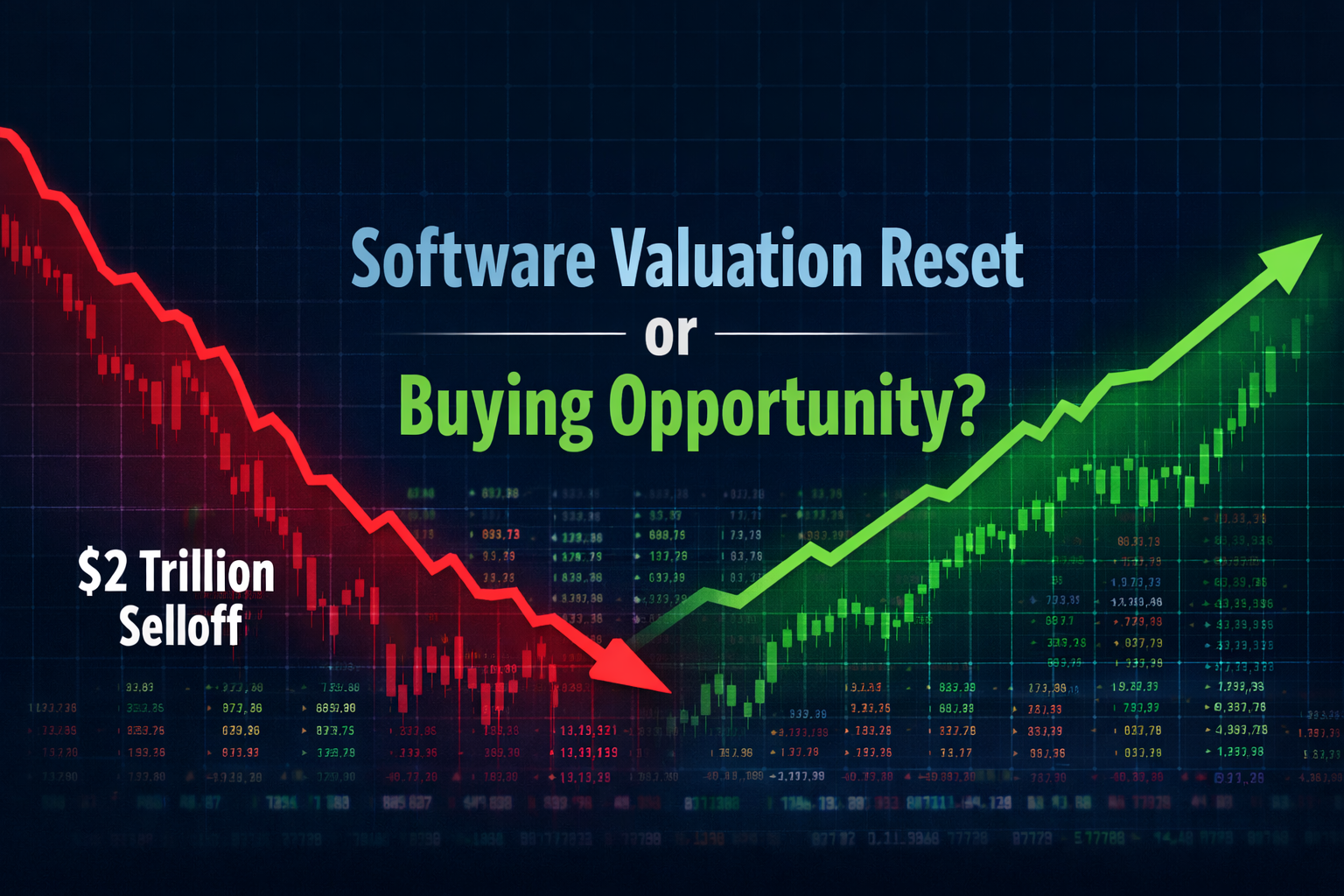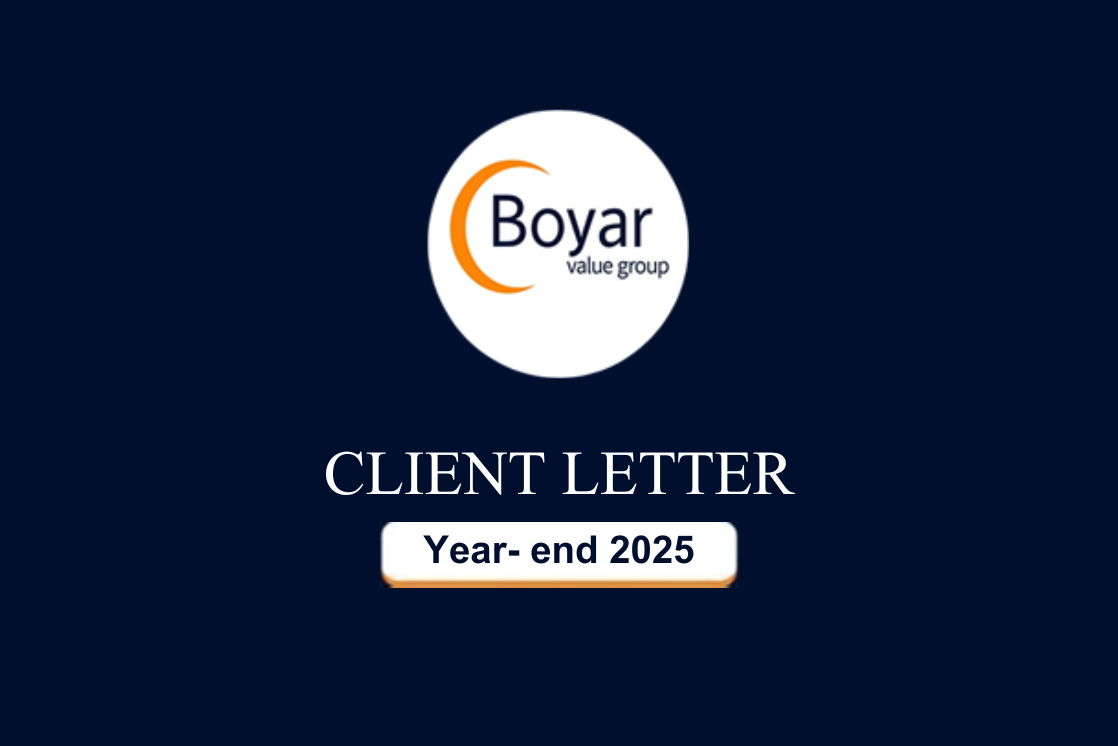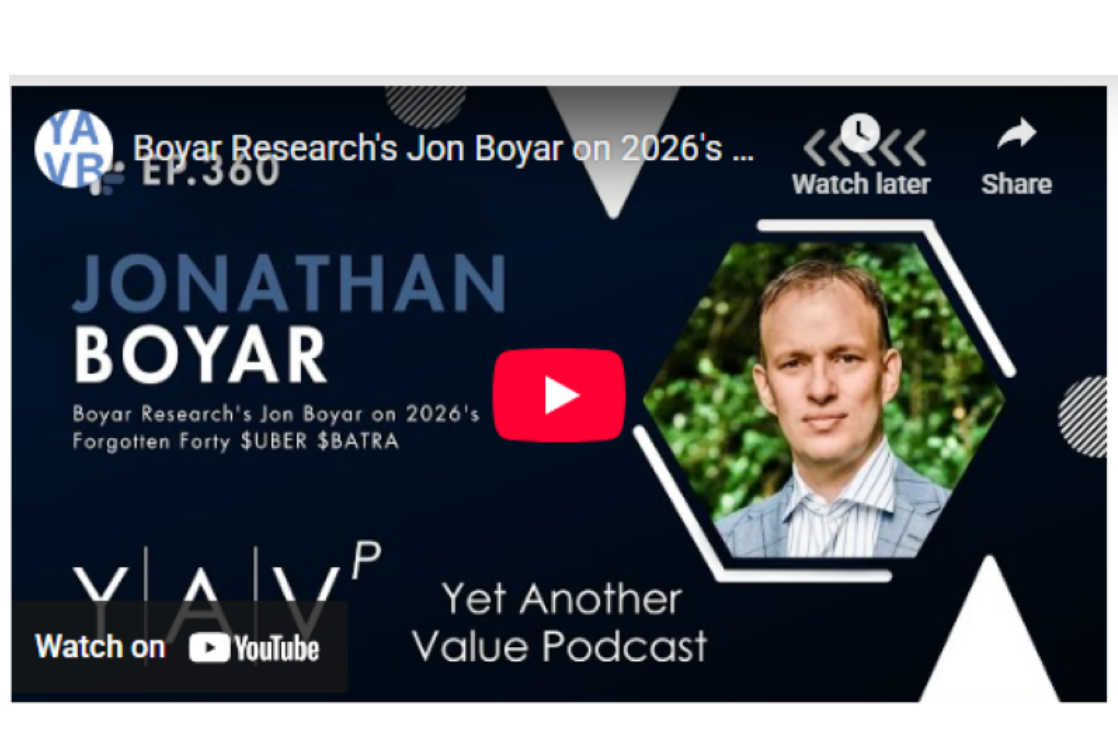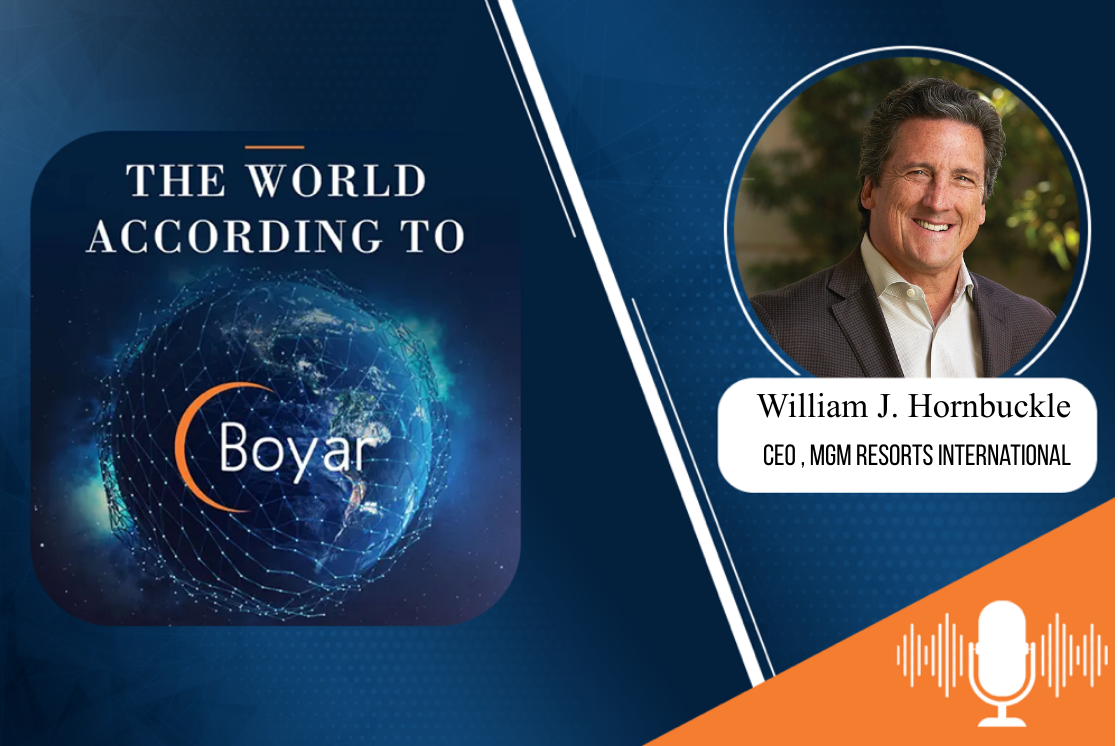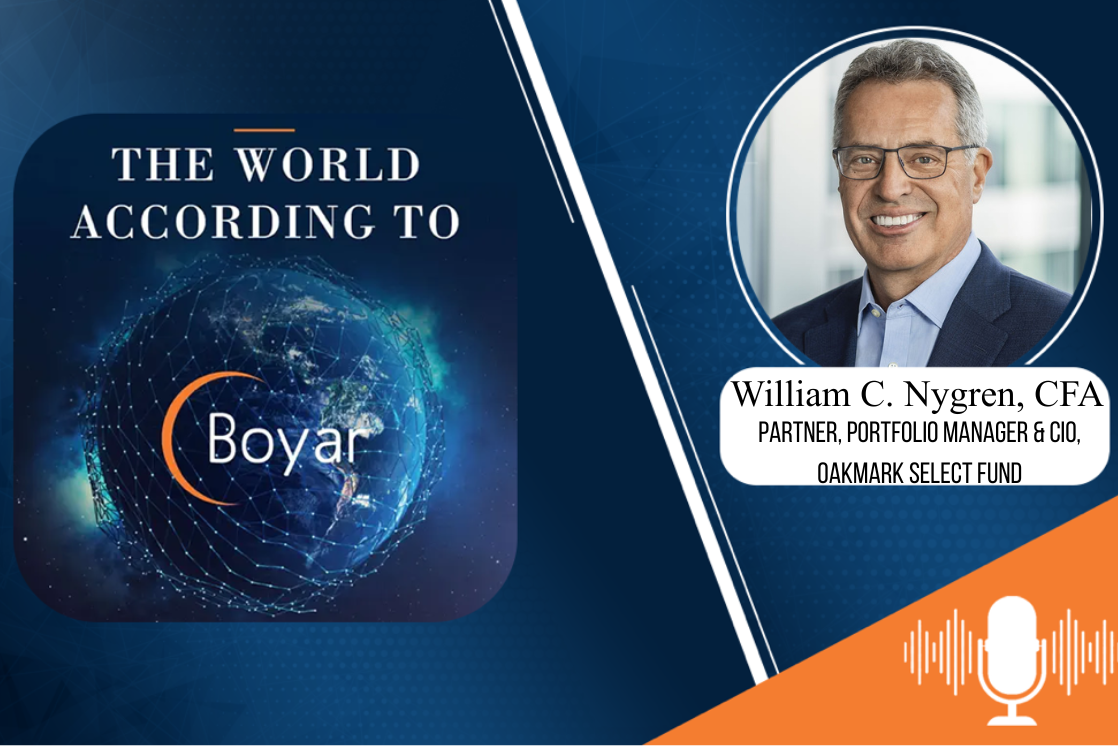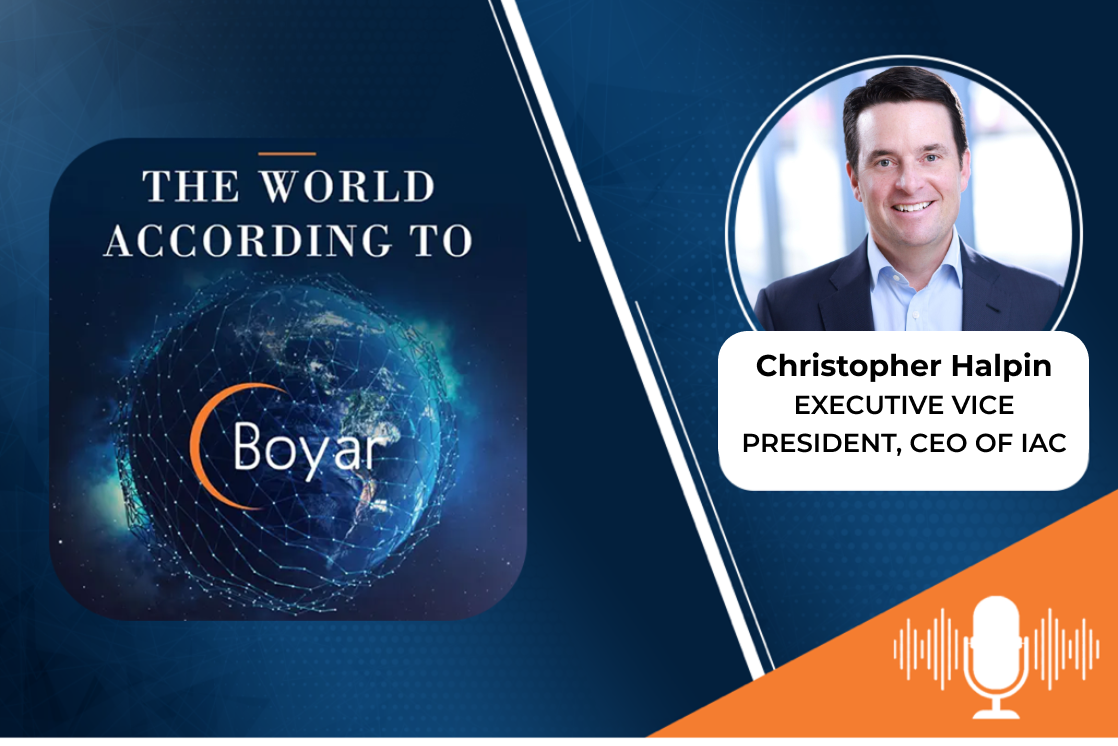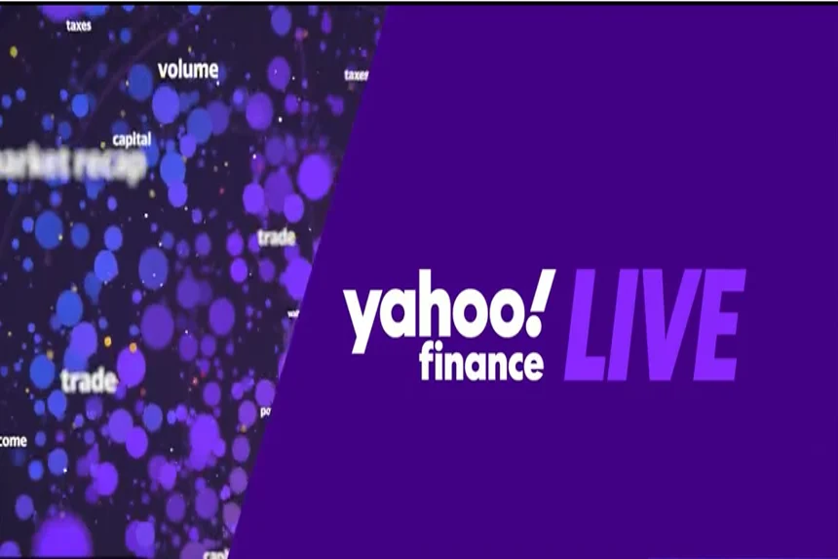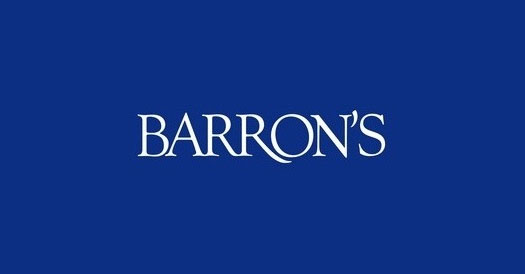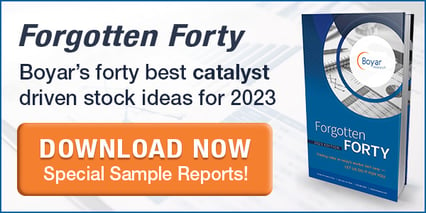Tom Gayner, Co-CEO of Markel discusses the evolution of Markel into a Fortune 500 company, the secret to success in the investment business and much more…
Legendary Investor Leon Cooperman on asset allocation, interest rates, Berkshire Hathaway, and where he is currently finding value in the stock market. - Value Investing Podcast
Ryan Serhant CEO and Founder of Serhant, on the NYC real estate market, potential technological disruption in the real estate brokerage industry, his firm Serhant, Jolie at 77 Greenwich and more. - Value Investing Podcast
These Cool, High-Quality Stocks Are Just Right For This Overheated, Overhaled Market - Boyar Value Group
The Interview Discusses:
- The secret to success in the investment business.
- His investment thesis on both Home Depot & Diageo.
- Why investing through the covid crisis was harder than investing through the financial crisis.
- How covid has impacted Markel’s insurance operations.
- His thoughts on Berkshire Hathaway investing in Markel.
- His observations of Warren Buffett as a fellow board member at The Washington Post.
- How Markel decides whether to invest in private companies through Markel Ventures or in public securities.
- Why he thinks it is possible for Markel Ventures to one day be larger than Markel’s equity portfolio.
- Why most investors who tried to use insurance operations as funding mechanisms have failed.
- How he decides to add to existing equity positions.
- The advantages of having low turnover in his equity portfolio that most investors do not appreciate.
- His thoughts on when it is appropriate to use leverage.
- Markel’s capital allocation priorities.
- His thoughts on the cable industry.
For more information on the 2023 Markel Shareholders Meeting, please visit www.MarkelShareholdersMeeting.com
About Tom Gayner:
Thomas “Tom” Gayner is Co-Chief Executive Officer of Markel Corporation, a diverse financial holding company including insurance, reinsurance, and investment operations around the world. Markel is listed on the Fortune 500 and is headquartered in Richmond, Virginia, with 61 offices in 16 countries. Tom joined Markel in 1990 and oversees all investing activities. He is also responsible for Markel Ventures, a wholly owned subsidiary which acquires controlling interests in manufacturing, technology, and service companies. Prior to Markel, Tom served as Vice President of Davenport & Company LLC of Virginia and as a certified public accountant with PricewaterhouseCoopers LLP. Tom serves as the Chairman of the Board of the Davis Series Mutual Funds and on the boards of the Graham Holdings, Cable One, and Markel. He is a member of the Investment Advisory Committee of the Virginia Retirement System. Tom is a graduate of the University of Virginia and The Lawrenceville School.
For any questions or to ask a copy of the Markel report, please email us at boyarresearch@boyarvaluegroup.com.
After you’ve done so, we encourage you to check out our special preorder bonus offer and gain immediate access to our October and November 2022 subscriber research reports before we present you with this December’s Forgotten Forty.
Click Here to Read the Interview Transcript
Transcript of the Interview With Tom Gayner:
[00:00:00] [music
[00:00:05] Jonathan Boyea: Welcome to The World According to Boyar, where we bring top investors, best-selling authors, and business leaders to show you the smartest ways to uncover value in the stock market. I’m your host, Jonathan Boyer.
Today’s special guest is Tom Gayner, co-CEO and soon-to-be sole CEO of Markel, a Fortune 500 financial holding company with a market capitalization of about $18 billion with offices in over 16 countries. Tom also serves on the board of directors of Markel, as well as Cable ONE. He’s also chairman of the board of the Davis Series of Mutual Funds. Tom, welcome to the show.
[00:00:43] Tom Gayner: Thanks so much for having me. Good to be here.
[00:00:45] Jonathan: I’m really excited to have you on The World According to Boyar. I’ve been following Markel for years and I’ve always admired your business and what you’re trying to build. Boyar Research formally started covering Markel late this summer when shares were trading around $1,200 and our team published an extensive report where we made a case of why we believe it is worth over $2,200 per share.
Markel is really well known in the value investing community and some people have dubbed Markel to be a baby Berkshire. For those at home, less familiar with Markel, do you mind giving us a brief overview of your firm?
[00:01:18] Tom: Certainly. Markel’s first off, a fun place to be. We appreciate you guys checking in on us and following us and I enjoyed the work that you did and the report that you wrote.
We got our start back in 1930 in Norfolk, Virginia when a fellow named Sam Markel, who started the business, started out by providing insurance for the jitney industry, as was called, you’ll might think of it as the Uber of its day. In the early days of the automobile, there were veterans and people who had a car that were offering a nikel a ride sort of thing. They were known as jitneys.
It was a new industry. There was not actuarial data. That was not insurance as you might suspect. Accidents happened and people were looking around for who’s going to be responsible for that. Sam Markel was a member of the Norfolk City Council. He was also in the insurance industry. He very entrepreneurially said he’ll start a company to provide insurance for that.
That’s really where Markel started and it’s our legacy of being a specialty insurance company. We were fortunate in that over the course of the next 30 or 40 years, we had the growth of the automobile, the growth of the interstate highway system, and the long-haul trucking business. All of those were wonderful growth waves that Markel rode for quite some time.
It became a bit more of a commodity and the data became more actuarial. The profitability started to diminish and Markel started to diversify into other things that also coincided somewhat with the generational transfer between Sam Markel and his four sons, they became an agent of Lloyds of London again.
That focus on specialty insurance and things that other people might not do or not a commodity needed some underwriting judgment and artistry. They did that for some period of time. The third generation of Markels came into the business. This would’ve been in the 1970s or so, and they started building out an insurance underwriting operation, moving away from the agency model, really more towards underwriting.
Steve Markel, who was one of the three members of the third generation was the gentleman who led the IPO, helped separate what it meant to be a member of the family versus a member of the management team, brought in outside capital with the IPO, ultimately hired me.
The model was basically what we observed taking place at Berkshire where we had a specialty insurance operation that was willing to take the pennies of underwriting profit that they were making and invest them longer term. That’s where we pleasantly and favorably get that name of Baby Berkshire. Yes, we do indeed follow that model. I joined to be part of that effort of managing the investments and similarly to Buffet where that capital started with the insurance business. It morphed into investments and then into buying, controlling interests in various businesses in all kinds of different industries. We have three engines, we call them these days.
There’s the insurance engine, which is the legacy of the business. There’s the investment engine, which grew out of the insurance company. Every insurance company has an embedded investment operation, and then Markel Ventures, which is our collection of about 19 or 20 different businesses that operate in a variety of industrial and service fields.
[00:04:35] Jonathan: You’ve been in this business for quite a bit and one of your early mentors told you the key to the success in the investment industry is to survive the first 30 years.
In your first 30 years, you saw a lot. You had the savings and loans crisis, long-term capital, the dotcom boom and bust, and the global financial crisis. I’d love to hear how this helped prepare you to navigate through COVID in the last year, which to put it mildly, has been an extremely challenging environment to one, run a company and two, to be an investor.
[00:05:06] Tom: Thanks for reminding me about Mr. Reynolds. The gentleman you referred to as a mentor was a guy named Ned Reynolds and he worked at Davenport and Company in Virginia, which is where I started in the investment business. He was a spectacular mentor to me in so many ways.
That particular comment that he made to me was unsolicited. He just happened to be standing next to me one day and randomly said that. There were so many things that I can remember him saying that really weren’t part of a conversation, just statements, but that is one of the ones that stuck with me a tremendous amount. Now, the reference to 30 years, I think what he meant is generation. One of his other sayings was, “What you want in life is a young doctor and an old broker.” What he meant by that is that the day you graduate from medical school, in many cases, that’s going to be your peak level of technical knowledge of what’s happening in the world of medicine.
Then you’re out practicing and you learn different things, but in terms of staying on top of exactly what’s new, that might have been your peak moment. If you’re a broker, if you’re in the investment business, an investment advisor, counselor, it should be that each day that goes by, you should learn something and you should be a little smarter, a little better, a little wiser that the next time you see it. His point was that 30-year generational time frame. Normally, you’re seeing things for the first time through the first 30 years, and then you’re seeing the same thing the second time around.
You look in today’s market, all the things that happened, I mean, that are still unfurling with the FTX situation. Every financial story like that seems to unfold in roughly similar lines. There’s something that comes along, it’s new, it’s now well understood because it is new. It is described in very sophisticated terms or seductive terms such that money goes in, and at some point somewhere along the line, somebody wants to take a little bit more money out than what’s coming in and things seem to go sideways.
That has happened over and over and over and over again. Once you’ve seen it once or twice or 300 times, you should be a little bit better about not falling for the next time around or handling it better. That’s really the essence of what he was talking about through that story of lasting the first 30 years. I think there’s an epic amount of wisdom in that.
There’ve been some nuances to that. For instance, in the ’08-’09 financial crisis, by that time I’d been in the investment business about 25-ish years. I had told that story several times and good friend of mine reminded me of that. He was roughly the same age as me and he says, “Tom, I was hoping by the time we got to 25 years, we could round up to 30, but I guess we’re going to have to live through it.”
We did and we got through it, and now I’ve been at Markel for 32 years. It was basically year 30 at which time the COVID pandemic hit, and that was new to me. I had read about pandemics, but I had not had any firsthand experience with it. It did feel new. I’m hoping at this point we’ve crossed through the list of things that, at least you have had some familiarity with by the time they had come around.
This is a business where there just, is literally no substitute for experience. You can read about things, you can study things, you can be diligent, you can do your homework, but until you feel the visceral gut punches of what it means to live in a volatile market or not know what the next day will bring, you just don’t have the skills to be, an expert is not exactly the right word, but someone who can calmly deal with the circumstances you face.
The good news is, whether the 30 is a round number, whether we’re rounding or using truncation, I’m at least over 30. I think I’ve seen a good number of the things that one is likely to see and it just, it helps you have perspective about things
[00:09:03] Jonathan: In terms of perspective, what was more difficult investing through 2008-2009, the dotcom melt-up, and then crash or the COVID environment, which hopefully, is on the flip side of, but who knows, which has been harder for you in a professional sense?
[00:09:24] Tom: Frankly, the COVID’s been harder in a professional sense because in the ’08-’09 time, and again, I’ve been through ’98-’99, the dotcom implosion. In ’08-’09, you were looking at a balance sheet problem. Just leverage had been become too prevalent and the system of just too much debt.
I started out life professionally as an accountant. I can look at balance sheets so that I feel pretty comfortable in analyzing what debt is all about and not just the explicit debt that you’re going to see on a balance sheet, but the ways in which debt is hidden in structures. A lot of the derivatives type issues that you would have, a lot of going back to our early accounting days where people used leases and accounting treatments were such that you didn’t have to put the totality of the lease on your balance sheet.
I’ve been through rising interest rates when insurance companies more the life side than the PNC side, would have bonds on their balance sheet, which would help add costs rather than mark to market. Because if you’re in the market that impairs the capital too much. With the last couple of months and interest rates going up, that movie is playing all over again. All of those things, I had seen financial stuff before.
I lived my whole professional life in the financial world. I have not been a medical person so when you saw the pandemic come across and the human death toll that was happening there, I had zero experience, zero frame of reference, zero ways to understand that. That’s a more frightful thing to work your way through and less sense of internal confidence about, “Oh, I’ve seen this before, this is what’s going to happen next.” I did not have that at all. Thank God I made it through, we’re here.
I think and I hope very much on the other side, not just in the pandemic itself, but in understanding what it is that we as citizens, that we as governments should do should we be faced with these kind of circumstances again. I rather suspect people a lot smarter than I am, that say, this is the nature of the world and the idea of pandemics is not something that should be foreign to you. Because with the interrelated nature of travel, commerce, people going all around the globe for all kinds of reasons, we’re connected in ways that we didn’t used to be. That’s a good thing but it does connect to some risk of future pandemics as well.
[00:11:45] Jonathan: As someone who runs an insurance company that incalculable risk is got to be a really scary thing. Obviously, you have actuaries, et cetera, who are taking this into account, but you have some interesting lines of business, event cancellation, other things that almost are impossible to quantify. How do you go about doing that?
[00:12:04] Tom: Event cancellation, funny you should bring that up or not so funny, but I guess I can laugh a little bit at this point, that was probably the largest single source of loss for us in the pandemic. I don’t blame our underwriters or actuaries or anybody who was involved in writing that business from the word go because they were doing exactly what you would think they should do in the form of being disciplined and having a diversified risk.
If you’re insuring a wedding in New Jersey and a folk festival in upstate New York and a music festival in California and a wine festival in Oregon and a tennis tournament in England and a parade in Japan, this worldwide global spread of business. Boy, you think you’re doing a pretty good job of diversifying because what is something that’s going to happen that’s going to affect all of those things? A tornado or a hurricane, a weather event, all those sorts of things, which would normally cause a problem with events. Those geographically tend to be isolated.
The pandemic was something, it touched everything, every concert got canceled, every sporting event got canceled, every parade got canceled, every wedding got canceled. It was just something that we had never seen before. That said, that is not a business right now that we think we can price reasonably well because we’ve seen data that says all the techniques we used to manage risk and price that went through a period where that just didn’t work. We have not yet figured out how to properly price the risk that’s involved with something like that.
[00:13:36] Jonathan: Not that you needed it, but you received the investing world’s equivalent of the Good Housekeeping Seal of Approval when Berkshire bought shares in Markel. How did you find out they took a position?
[00:13:48] Tom: Same way everybody else found out, seeing the 13F filed. It was earlier this year, it was sometime during the first quarter of this year, that they took their position and we found out about it by their publicly disclosure of the 13F.
[00:14:01] Jonathan: Did you make any contact to the folks in Omaha?
[00:14:03] Tom: I’ve been very fortunate in that I started going to Omaha back in 1991. That was the first year I went to the Berkshire annual report. At that particular time, there were probably only about 700 people that attended that meeting. Buffett was not the celebrity then that he is now. You literally could go up to him at the annual meeting and introduce yourself and chat for a little bit. Actually, I did that back in 1991 and that’s good fortune to at least having some social interchange with him since that time.
Now, I was super lucky in that I was asked to serve on the board of the Washington Post company. I think that was back in 2007 or so. At that time Buffett was on the board so we were fellow directors of the Washington Post company for a number of years until he left that board. I got to have something of a professional relationship with him through that time and five board meetings a year and five board dinners and that sort of thing. I’ve studied him, I’ve read everything he’s written. I’ve had the good fortune of being able to chat with him directly. He’s been a spectacular role model and mentor so I was delighted and grateful when they showed up as owners.
[00:15:13] Jonathan: You were on the board of the Washington Post with him and you mentioned you got to read all of his letters, which everyone else who’s in the investing world has the opportunity to do. You got a first-hand view of him in action. There are things that people who haven’t read of all his letters in his interviews would be surprised about him or something that you can tell us about him that you found particularly interesting in terms of how he goes about business and how he prepares et cetera?
[00:15:41] Tom: One is, what you see is what you get. Buffett is almost super human in his dedication to being a great investor, a great leader, a great manager, a great historian, a great student of the game. He has been so good that sometimes people think, oh, there must be a magic trick involved or some freak of nature or some secret formula, whatnot. No, I think that’s what you get when you combine a pretty high IQ with a phenomenal work ethic and phenomenal concentration and surrounding himself with phenomenal people.
Whether that’s Charlie Munger, Ajit Jain, Greg Abel, Ron Olson, all those kinds of people that would be in his–, just on and on and on. If you think about, and he talks about the concept of 20 punches, 20 great ideas. We’ll take his top 20 people that he would’ve spent the most time with over the last 70 years and line them up and think about the collective IQ and talent and wisdom of whatever people he spends time with. Just an undiluted and unfiltered way to be extraordinarily good at this, and he’s done it for a long, long period of time, which is where the compounding really kicks in.
Morgan Housel, who wrote a wonderful book called The Psychology of Money, happens to pleasantly be on the Markel Board. He is a good friend and colleague and helpful counselor to us. I think the statistic, if I remember it, is something that two-thirds of Buffett’s wealth occurred after he became 60 years old. He spent a lot of time just pounding it out, grinding it out year after year after year after year after year of compounding and then he survived to where these compounding mechanics and math just create extraordinary numbers.
One thing I would urge people to do when you’re studying them, don’t overthink it. Don’t think there’s something there that isn’t. Look at what’s obvious and take things for what they are and try doing it for 30 or 40 or 50 years yourself and see how it works out. I suspect that it will work out relatively well. Maybe not as well as it did for him, but I think that would be fundamentally good way of trying to approach the investment business.
[00:17:56] Jonathan: Getting back to the traditional Markel Insurance Company, having a profitable insurance company, the beauty of it is each quarter you essentially get yourself inflows of cash to manage on a consistent basis. For the portion you decide to allocate towards equities, how do you decide to add to existing positions versus making new investment?
[00:18:17] Tom: Let me back up a second there before I answer that question because you said something very, very important and I want to make sure that your listeners get this particular part. Having a insurance business is profitable. Boy, that just rolls off the tongue. It’s easy to say, but very hard to do, and I want to thank the insurance folks on the Markel team because they are the ones who funded so much of what we’ve been able to do on the investment and venture side and it is hard.
There are other people who have tried to use insurance operations as funding mechanisms for investment vehicles, and generally speaking, that hasn’t really worked that well. I do think there’s some cultural reasons why that’s the case. If you think about investment type people, and here we are in New York n the center of some high-end investment-type talent. Investment people tend to be pretty well compensated, they tend to have somewhat pleasant lifestyles and maybe some ego in the game and that sort of thing.
If you’re an investment person, you want to be part of an investment culture that accepts and handles things in that way. If you’re part of an insurance organization, the insurance organizations are typically run by people who have come up through the realm of underwriting or sales or actuary or administration type stuff. It’s a grinding it out. You got to be detail-oriented and you got to just go after it day after day after day in small incremental ways, and you have to avoid catastrophic losses as opposed to make big gains, which is sort of the mindset on the investment side.
I think it’s fairly rare that you find an organization that culturally, a first-rate investment person and a first-rate insurance person would feel comfortable within the insurance side. There would be maybe a little scoffing or under appreciation of the discipline that first rate insurance people bring to the table. The insurance people might not be willing to pay the invest people as much as they think they should get. You look at birth Berkshire. It is the absolute archetypical example of a place where those two sides of the tent have leaned into one another, and you have absolutely first rate investment talent, ie Buffett, and first-rate insurance talent as exemplified by Ajit Jain,
the people at the Geico, National Indemnity and Buffett himself with his understanding of what goes on in insurance. I would posit that Markel, to some degree, has been that. We have a culture that has embraced both the details and the disciplines of insurance and investing at the same time. I’m lucky enough to be the investment guy and come up through the investment side, even though as a be responsible for insurance side as well. How that has practically played out is I’ve now been at Markel for 32 years and 32 years, if I’m doing my math right 12 months a year. That’s 384 months that I’ve been there.
On 379 of those 384 months, money has been deposited into the investment account from the profitable operations, both of the insurance business and now increasingly, Markel Ventures. Markel Ventures have been around since 2005. We’ve been profitable every single year since we started that as well. You use the phrase dollar cost averaging. You’re exactly right in that every month I have positive flows that I’m dealing with and I can choose proactively to make investments because, and I’m not just playing them on paper. I have cash flow to invest almost all the time.
That’s been a wonderful advantage over the years of compiling the investment record that we have, is we’re not dealing with one of the challenges that oftentimes investment people face in that their clients want to take money away from them after they’ve had a bad run. You probably should be giving them money and the clients want to give them money after they’ve had a great run you probably should tap the brakes a little bit.
[00:22:21] Jonathan: It’s 379 months of positive cash flow out of 384?
[00:22:28] Tom: That’s my swag estimate. The 384 is right. The 379 is– It might be 377, it might be 382. I don’t know. It’s the vast, vast, vast majority.
[00:22:37] Jonathan: Unless those four or five, six months were really bad, that’s an amazing record.
[00:22:42] Tom: I can remember why those four or five months took place, 9/11. That’s a month or two where, my goodness gracious, you’re going to get your bearings and make sure that the world is on its axle and the early days of the COVID pandemic. Those really were the only two periods where in a month or two or three where we were finding our footing and making sure we were somewhat cognizant and somewhat aware of what the world really was.
[00:23:08] Jonathan: You have a big portfolio in terms of names, but it’s relatively concentrated in terms of positions and the same. You have some very low-cost basis in companies like Home Depot, Diageo, some other great names. Is it psychologically hard to buy more of those names over time? How do you invest as money is coming through?
[00:23:28] Tom: Fortunately, that’s psychologically, for some reason, it’s not hard for me. Let’s take each of those examples you cited. Home Depot, basically in the ’08-’09 crisis, housing, obviously, was one of the epicenters of where the problems were. I’m not a handy person. My in-laws one time gave me a toolbox and my wife just laughed and laughed and laughed, and I think I gave it to my son. I’ve never used one of them. I’m just not good at that kind of stuff. Now, as a homeowner, there have been times when I’ve gone into either Home Depot or Lowe’s, and by the way, we own both of them.
I know that there’s something I needed to do to keep my house maintained properly, and those are the places that I got it. I never spent money there voluntarily, shall we say. It was my observation that many times when I was spending money at one of those places from my house, I had no choice in the matter. If I went in my house not to fall down or rot or have lights that work or plumbing fixtures or what have you, it had to happen. When I looked at housing stock that exists and just the maintenance load that exists, I thought those were spectacular businesses.
Whatever happened on the financial side and debt side and whatnot, they were better at distributing home maintenance equipment and supplies and everything for the existing stocks, set new construction aside, than anybody else. We started buying it and fortunately bought pretty good-sized positions in both of them from time to time since then. While that was the dramatic big add, I’ve added to it as recently as this year added to those stakes.
I don’t find it uncomfortable to buy more, and in fact, almost just the opposite because you get to know a company and you live with them and you see them do what they said they would do and live up to their promises and you get to know the management a little bit when you see some wobbliness in the price or some short term price action. That is a very comfortable thing for me to step into and buy more of.
Similarly, Diageo, I think we’ve probably owned that for 25-plus years at this point. I can’t recall a single incident when I bought a lot of it. It’s just something that I added to bit by bit over the years and can’t call a single catalyst as to why this year’s batch of Johnny Walker Black Scotch motivated me anymore or less than prior years. I’ve always been comfortable with their business and the way they run things. We’ve added to it over the years.
[00:25:53] Jonathan: Home Depot, in particular, is just such a well-run business. Shameless plug for The World According to Boyar. One of our first big guests was Ken Langone and then Frank Blake who did a fantastic job turning around that company. It’s amazing how they continue to be so profitable and it’ll be, you have any thoughts on, with people probably not buying new houses anytime soon, should the remodel business be strong going forward? What do you think?
[00:26:23] Tom: I think it will and in point of facts, the case that says that new home sales are under pressure and right now when the church rates rising, they are well every single day that goes by that I live in my house, all I know is it needs more maintenance. I grew up in a farmhouse that was 250 years old my parents bought that before I was born and they owned it, their whole lives and it never didn’t need something.
[00:26:51] Jonathan: I hope you’ve been enjoying the show. Boyer Research will be releasing our annual forgotten 40 soon, which contains our 40 best catalyst-driven equity ideas for the year ahead. To learn more about how to purchase this special issue from Boyer Research, please visit boyer research.com/2023. Now back to the show.
[00:27:14] Tom: In terms of your portfolio, I looked at your 13F, you have about 130 stocks, and you have a lot of responsibilities. Soon you’ll be running the whole company. You’re co-CEO now. In January you’ll be the only CEO. You have two other people helping you manage equities. What kind of information do you need to stay on top of the stocks that you own?
[00:27:36] Tom: Well, if I can find the next Berkshire or the next Home Depot, not that much. One or two ideas a year really power the investment returns and we do tend to hold on to things that we own. Berkshire was the very first stock I bought from Markel when I joined in 1990. Home Depot, we just talked about that would date back to 2008, which is now 14 years.
The portfolio turnover, generally speaking, is a single-digit percentage. We certainly try to be reasonably aware of what the current quarters are and the current developments. We’re not trading these like many other operations. Nothing wrong with trading, not right or wrong, it’s just different. We tend to buy and hold things. That also creates some tax efficiency in that the unrealized gain tends to build over time.
That would really be a strong argument against selling because if we have something that’s appreciated dramatically. When we sell that for a dollar, we don’t have a full dollar to reinvest. We have $0.75 or $0.70 or something like that. The amount that your replacement has to go up to replace the real value that you’re receiving upon selling after you pay the taxes is pretty dramatic, which creates a bias.
Some might call it an endowment effect, and some might call it a flaw, but it has worked out. There’s also some pretty nice math to that thing that has gone well and that managements do a good job of and are good business, oftentimes those are pretty persistent. I think there’s the statistic that if you want to make a guess as to which show on Broadway will play the longest, the best answer to that is the one that has already been playing the longest.
What that means is you have crowd-tested data that says this is a good show. Shows can have runs that last years. You might think, that show’s been there three or four years now. Come on, it might be there 15 years after that. Whereas the new thing that just opened and, maybe some people are buzzy about it, talking about it, that might be gone in 30 or 90 days. There’s a lot to be said for the persistency of some of the leading companies that we have and the amount of day-to-day work that’s associated with owning Berkshire and Home Depot. I got to tell you, it’s not that much.
[00:30:01] Jonathan: We’re big believers too in the magic of tax-deferred compounding your investors complain about investment management fees, but the biggest costs, at least in my view, most investors pay by far is taxes. By deferring those gains as long as possible, you don’t have to pay the tax man. At some point, something might get so overvalued, you might want to trim or sell. What would make you want to sell a profitable investment?
[00:30:27] Tom: When I think there’s been a fundamental change in the business. Our turnover is not zero, nor should it be that zero or 10% range. I do look at every single name that we own. We think about it, the [unintelligible 00:30:41] and Tyler Brown who work on the equity team with me. I mean, this is the sort of thing we would talk about and say, is there anything that has fundamentally changed that we probably ought to go ahead and sell? It’s not an act of topic of conversation, and it does get acted upon with some discipline and some regularity.
The other great thing that happens at Markel if you look at our top shareholders, you mentioned Berkshire. I’m not going to put them in this category right now, but somebody like your Chris Davis, folks at Baillie Gifford, who are very large shareholders, the folks at Principal who are very large shareholders, I tend to talk to them. I tend to see them at the Berkshire meeting. I hope that they’ll come to the Markel, maybe, which is on May 17th in Richmond, Virginia this year because the informal gatherings where you get to talk to other investors, frankly, I joke with those people when they own Markel stock.
I say, here’s the thing, you are smarter than I am, but I’m managing money for you. If you see something that I’m doing through the public 13F files, this is not insider conversation at all. If you see a name there that just seems like, why is that there? Let’s talk about that. Similarly, if there’s an idea that you have that’s a great idea, and it’s public, it’s 13F, you’ve bought as much of it. The very first person you ought to talk to about that is me because, in essence, that’s a way of getting more of that holding into your portfolio when it’s owned through Markel.
Conversations that have been long term in nature and with long duration friends, that’s a very productive way to help manage the portfolio of what’s in the Markel portfolio. I joke, while I only have two people working with me on the Markel payroll. I got 20 unpaid volunteer consultants whose interest is for Markel to succeed and for the investment portfolio to be run well. Would put you in that category to some degree in that, you’ve written about Markel, we’re having this conversation.
You’ve been aware of Markel for a long time. If we were both to write names of people we knew in the investment business down, there’d probably be a fair amount of overlap or one degree of separation. There is epic value in the friendliness that exists in this business from time to time to try to help one another in ways that both of you are better off.
[00:32:59] Jonathan: Thank you for putting me in the same conversation as Chris Davis and Davis Funds. That’s a really interesting way of looking at it. You have a really– It’s simple but not easy investment style where there are four pillars and one of the pillars is staying away from companies with high leverage, which makes sense. John Malone is kind of the master using leveraging. I noticed he’s in your 13Fs through I think Liberty Sirius and Liberty Broadband. Why does he make the cut even though they’re highly levered names?
[00:33:31] Tom: I think John Malone and the companies he’s led and the teams that he’s assembled, while they use leverage to build it out of nothing. If you go back and read the Cable Cowboy book, this sort of origin story in the cable business. After a period of time, you just have to tip your hat and say this guy is smart. He knows what he’s doing. I think his team does as well. There is some diffusion of the risks that happened because he’s connected to so many different entities, and some of those entities would have different leverage profiles and different cash flow profiles.
Some of them would be more appropriately leveraged than others. Even within our own business where we are on the low end of leverage in the way that we run things within Markel Ventures. There are some businesses within those 20 companies where we do use some leverage and it’s appropriate because those businesses tend to have a fair amount of fixed assets to them. Real estate type things or fixed assets, tangible assets, it’s appropriate to use leverage for that, especially in the era that we’ve just been in where interest rates have been extraordinarily low. We’re not dogmatic about zero leverage.
There are other businesses where the assets tend to be a little bit more intangible. The old joke about if you have an advertising agency, your assets could go out the elevator every night or in today’s world, log off their computers remotely, wherever they are. The point is, those sorts of businesses should have less leverage. Look at things in more than one dimension. Leverage versus no leverage is not a conversation you can have in isolation. You have to say, what kind of business is this? What kind of people are running it? How good have they proven to have been? Are they new at this? All of those factors go into what comfort level you should have with leverage.
[00:35:24] Jonathan: In also how you structure it. Malone is the master craftsman and structuring some of these things, Warner Bros. Discovery, which, obviously, has been a disappointment thus far. Most of the leverage isn’t due till 2040 and is at 3% or 4% fixed rate. It’s pretty astounding.
[00:35:39] Tom: In fact, I’ll tell you this story, I don’t know if this is going to make it through the editing process or not. This goes back probably 15, 18 years or so. One day I came to work and I opened the Wall Street Journal and there was a story in there about Walt Disney having just sold an issue of 100-year bonds and maybe the interest rate on them was 5.75% or something like that. I saw that and I went into our CFO’s office and I said, “We got to do some of this.”
I’d further joked, I said, “That 100-year bond they just sold,” but they were refinancing a 100-year bond that is 6% coupon that had a 5-year call and that was almost dead on exactly what the circumstances were. Anyway, we called our bankers, and again, this is an 18 or 20-year-old story and our banker said, “Walt Disney, that is a well-known consumer name. Markel, nobody’s ever heard of that. Nobody’s going to give you 100-year money.” I pouted a little.
The very next day there was a circumstance, I was looking at something and I don’t know if you know Eskimo Pie, the dessert Eskimo Pie. Eskimo Pie at one point was actually owned by Reynolds Metals, which is a Richmond-based aluminum company. The way Reynolds Metals came to own Eskimo Pie was there at some point 30, 40, 50 years, whatever, when Eskimo Pie couldn’t pay their bill for the aluminum wrappers that they put Eskimo pies in. Reynolds ended up owning the company. They ended up spinning it out and it was a publicly traded separate entity that had a market value, maybe $20 million, $25 million.
I said to our CFO, I said, “We should buy Eskimo Pie. Then changed the name of Markel to Eskimo Pie.” Then that way we could call people up and say, “You want some Eskimo Pies?” Who could say no to that? Now, needless to say, that was one of those silly ideas that I have that did not get executed. The point is that you’re just making terms and conditions that matter a great, great deal. In the last board meeting we have, I put some documents together for our board talking about that particular point in specific.
I think it was last year during calendar year 2021 that the Austrian government sold some 100-year bonds. Now, the Austrian government, I’m going to say that’s a pretty good credit. It’s not bulletproof, and the range of credit quality, they’re right up there. That’s a credit-worthy thing. I think the coupon on it, if memory serves, was 0.85% for a 100-year bond. Those bonds today are trading at about 48%.
Now, some people call that bond investing safe. If you go down and are buying a 2-year treasury at 3.7% or something like that, whatever the rate is, okay, I get that. That’s pretty safe. I think you’re going to be paid back. The inflation-adjusted and the nominal dollars that you’re going to get are going to be recognizable.
The world probably not going to change in 100 years. That’s insane to put money out for 100 years at a 0.85% interest rate just strikes me as silly. Point is, if at Markel we were offered the opportunity to sell 100-year bonds at 0.85% and put debt on our balance sheet, we are going to do that. I don’t think that offer is probably going to be forthcoming anytime real soon.
[00:38:57] Jonathan: Crazier things have happened over the last 10 years.
[00:39:00] Tom: And they have and here’s the good news, they do. By going to work every day, by just trying to be rational, to be thoughtful, to read the paper, to study what’s going on, to be aware of markets, you’re going to be presented with opportunities from time to time in irregular fashion to do things which will have benefits for years and years and years to come.
Sometimes that’s like Home Depot and Lowe’s in the middle of the housing crisis where I’m having to spend all this money there as a consumer and I didn’t want to. I thought, “That’s a really good business,” and that’s one of our large [unintelligible 00:39:31] these days.
[00:39:32] Jonathan: You’ve been a member of Cable ONE’s board for quite some time. Cable companies like Comcast and Charter have been horrific performers of late due to fears over Fixed Wireless Access. Is this as big of a thread as the market seems to be telling us? Should we read into the fact that Markel has low exposure to cable companies as a percentage of the portfolio, that you’re not bullish in the long-term aspect of that type of business?
[00:40:01] Tom: No, that’d be an overread, and in fact, I personally have been on the Cable ONE board. I’ve personally bought some stock recently in Cable ONE because the price action seems rather dramatic to me, shall we say, we’re also shareholders of Comcast. We do have some investments in the cable business. Cable’s a funny industry and the stocks of Cable ONE, Comcast, Charter– I’ll just talk about those three because I think it’s more fair to talk about those than some of the other ones. I think the stocks are way more volatile than the business itself.
If you go back into Cable ONE, take that as an example, when that first came out as a spin-out of Washington Post, Graham Holdings, I think the first trades were roughly at about $350 a share. It subsequently went up. Cable ONE had a very differentiated strategy. Tom Might, who was the CEO of the company at the time, was very public in the idea of unbundling and he thought carrying the video was really not a profitable activity for the cable companies to do. He really saw the splitting of the broadband connection versus what you were watching ahead of the curve. Cable ONE was criticized for that and then came to be celebrated for it and the stock went up a bunch.
Now, that was added to and magnified by the pandemic when amidst quarantine, amidst working from home, having a broadband connection to your house, that’s oxygen. You would think of that like oxygen, like your water connection, like your electric connection. You just can’t function in the modern world without it. The growth rates went up and Wall Street has a tendency to really love growth and assign pretty high multiples to it.
I don’t know about you, but when we were talking about writing the names on a piece of paper, if I had to have a piece of paper and write names of people who don’t have broadband connection these days, there’s not that many. These include people who live out in the country and rural places. The growth rate of new subscribers has diminished from what it was a couple of years ago. Not just Cable ONE, but Comcast and Charter as well. Those stocks are down a bunch as Wall Street seems to be rerating the fundamental growth rates of new customer acquisition.
Now, while new customer acquisition may be at a slower rate, maybe more population-constrained, I don’t think you’re going to lose customers. Nobody is giving up their broadband connection. I think the dependable recurring nature of the cash flows in that business, and you can also spend a little less on CapEx when you’re not adding customers so much. They seem like pretty good businesses to me, which is why I bought some personally and why Markel has bought some.
The third layer of that, and again as Buffet said, he learned investing from Ben Graham, he learned about managing the business from Andrew Singleton. Look at Singleton’s behavior at Teledyne in response to what happened in stock market volatility. When the market was up, Teledyne would use their shares as currency and raise capital. With Cable ONE, we did too.
When the stock was pleasantly valued, we did raise some capital and I think in some pretty good structures. It’s a matter of public record. You can look at the queues. We’ve been buying stock back in. I think in the face of stock market volatility, Cable ONE has acted rationally and I enjoy being associated with the company because they’re interested and concerned, and motivated by acting rationally, which is all I ask of people. It’s a fun company to be connected to.
[00:43:40] Jonathan: I just want to talk a little bit about Markel Ventures. You started in 2005, but you started thinking about it in 1990. In 2005 you launched it, where you purchased controlling stakes and businesses. That year Ventures had about $2 million in EBITDA. Last year Ventures, I think, had about $400 million or so. Would you be surprised if one day Ventures value is significantly greater than that of the equity portfolio?
[00:44:08] Tom: No, and really the way that that would come about is just trying to be rational. One of the beautiful things at Markel is we really have a 360-degree view of where we can allocate capital. The first choice and the favorite thing that we would do in allocating capital would be to fund businesses we already own. Where things are going well and the people who are running those businesses have the opportunity to deploy capital, earn good returns on it, and they’re already inside the tents, they’re already proven winners. That’s number one on the list. We fund them first.
The second is where there are opportunities to buy a new platform, to buy something different, and add it to the kit bag and let them grow and prove themselves over time. Third is we can buy publicly traded securities, whether those are equities or debt. Fourth, we can buy in our own stock. It’s in that one, two, three, four order, but all four can be taking place at the same time simultaneously, which is our circumstance where we sit right now. We really don’t think about a target as to how big insurance should be or how big ventures should be.
What we think about is on every single day when we come to work, we think what is the logical thing to do with capital? If that answer would point us in a certain direction disproportionately for a certain period of time, that’s going to become bigger and that’s an outcome, not a goal or a target.
[00:45:31] Jonathan: When someone joins the Markel family, you buy their business or controlling stake in their business, how much autonomy will you give them? How much attention are you paying to what they’re doing on a day-to-day basis? How does that relationship work?
[00:45:47] Tom: We try to give them as much autonomy as is humanly possible. We are a public company, we file public company financial statements. We get monthly financial statements from each of the businesses within Markel Ventures. We have quarterly board meetings as a normal process with the Markel Ventures companies. We review the annual budgets for the Markel Ventures companies.
The managers in those companies would have capital expenditure authority limits and decisions that below a certain size, they make completely on their own basis and try to do the best for their company. If something comes up, a merger opportunity, an acquisition, a capital expenditure that’s larger than what is budgeted or intended, that’s the thing we need to talk about off-cycle and middle of the month or between dates in the quarter. We really try to have a fun and business-like mutually reinforcing relationship with the people who run those businesses but make no mistake.
The people who run those businesses are the CEOs of those businesses and we back them and give them as much autonomy as we possibly can. We try to impose as little corporatocracy as we possibly can because we want the people running these businesses to have a sense of ownership and pride that this is their business. This is what they identify with and build it out over a long period of time. Other companies do that in different ways and I’m not going to say it’s right or wrong, it’s just different. Our approach is one that fosters as much autonomy as possible.
[00:47:19] Jonathan: A lot of these people whose business you bought either their family businesses or their entrepreneurs so it’s got to be a huge adjustment for them. How do you incentivize them in terms of either their pay package or whatnot to continue doing what they were doing?
[00:47:35] Tom: I think the word incentives is oftentimes defined and understood solely in the context of money or finances. While that is important, there’s more to it than that. There are cultural incentives. It is a point of pride for some people that oftentimes these family businesses are usually not first-generation family businesses. They’re second or third, or in one case, a fourth-generation family business that we have purchased.
There’s a bit of identity that comes with that heritage of running a family business that the home that Markel offers to somebody like that, they’re wired the right way. They’ve been wired that way since birth to think generationally and make sure that the next generation gets a better business than what the previous generation did so that’s very helpful.
In terms of the financial stuff and the financial stuff is very important. One of the hallmarks and tenets of how we would design incentive systems is multi-year. Generally speaking, we do the very best we can to have as long a time horizon as possible for the way somebody would earn financial incentives. Personally, for me, my incentive compensation is based on a 5-year rolling average. Every year at the end of the year, we’re not just toting up what happened this year, we’re toting up what happened the last 5 years and the next year, the oldest years are going to roll off and the newest year is going to roll in.
In essence, again, I’ve been there 32 years. You get used to thinking in forever terms when that’s the way you do things. The typical timeframe that would often be in place at most of the is 3 years. I would be happy if it was 5, would be happy for 10, I’d be happy if it was 12, but 3 years is already weird enough compared to what most other people do that tends to create that length and in a time horizon that’s different from what most other people do but it’s very helpful to that.
[00:49:34] Jonathan: Now, it’s early December 2022, the capital markets, I wouldn’t say are frozen, but it would be pretty difficult for a leverage deal [chuckles] to get done. Now with Markel Ventures and you have obviously your own financing, are opportunities being shown to you, is that now a competitive advantage that you are a willing cash buyer?
[00:49:55] Tom: It is. Let me answer specifically your comment about the year-end coming. I can pretty much promise you we’re not doing a deal this year. [chuckles] Here it is. We’re December 6 or 7th or whatever it is today, right now, just to do legal postcards back and forth between now and year-end is highly, highly unlikely [unintelligible 00:50:13] financial market side.
Now, if you went back and you read the annual report for the last couple of years or listened to conference calls or anything, I would have said that given the pricing that existed in the private equity world, it would be unlikely for Markel to buy something this year in 2021. We did buy a couple of businesses. 2020, same story. 2019, same story.
They all took me by surprise, and to some degree, they were inbound phone calls.
Now, the amount of spread between what we think things are worth and what they were trading for in the market just kept getting wider and wider, such that, again, I just kept saying, it’s highly unlikely for us to be able to buy anything, but some unique or special circumstances came about that we were able to.
That did not happen in 2022, and I’m pretty sure it won’t. That said, prices are coming back down, interest rates are going up. The leverage transactions that are out there are being re-underwritten. Our phone is ringing more today with inbound calls than what would have been the case six or nine months ago. Will we act on one of those? Probably. Will that be in 2023? I don’t know. We’re having conversations and we’re talking to people, so we’ll see.
Now, that said, even within this year where we didn’t do any new whole businesses, we did do some expansions of some of the businesses we already own where they were able to buy a competitor that they would have known. Those were not massively big deals to Markel very large.
They were big deals to the people who did them. Markel’s ability to be ready, willing, and able to fund and backstop those deals is a very important incentive for the people running those businesses. Again, that’s partially a financial incentive. It’s partially pride. It’s partially just the fun of being part of something that’s growing. All of those things are non-quantitative aspects of what incentives really mean.
[00:52:12] Jonathan: You’re having your annual meeting, I think it’s May 17 down in Virginia. What has been like the last couple of years going to those meetings?
[00:52:21] Jonathan: Thanks for asking. Yes, May 17, 2023. I hope you and anybody who’s listening will be here. Going back a couple of years, I guess this would have been 2021. You got to make plans. It came to be that in January, February, and we’re thinking about the upcoming annual meeting in May that was still in the midst of quarantine, and my bias if possible, I wanted to have the meeting live because I’m a social person, I like people. Again, that building of community and just hanging out with people is a very valuable thing.
We were sitting around the table at lunch and four or five of us, and just spitballing ideas, where could we possibly have the meeting where we could accommodate the world in which we lived but still try to get people together? I came up with the idea that out at the Richmond Raceway, there’s a concert venue out there and it’s a 6000-seat arena and it has a cover on the top for the roof, but the sides are open air.
Rather than have it inside in a theater or something convention center like we did in previous years, we try to meet people halfway so at least it is an open-air venue. We called out there and really for some amazingly low price, and I mean amazingly low price, we were able to book that venue. We did. Thought that would be fun to give that a try and we also wanted to be fun to give people a reason to be there. We decided, after the meeting itself we would have food trucks, we would have beer trucks and we would have a band.
You asked what it was like. I called the band that somebody around the table had recommended and I spoke with the leader of that band and made inquiry about what music they played and whatnot. I said, “How long will you play?” His response was, “How long do you want me to play, man?” He hadn’t had a gig in two years. They were just glad to be there. We had over 500 people come. The people were glad to be there. For so many of them, it was the first time. Being in a social crowd and the hugs, the joy of being together again, it is really quite vivid and very much on display at that.
Then the next year we did the same thing and we went back to the raceway. This year we’re going to go to the grounds of the University of Richmond and we’ll be in the arena where the basketball games are played. It’s called the Robin Center and we’ll have fun and that will give us the opportunity to host a lot of people. First year we did it a couple of years ago we had 500. Last year we had a little over 1,000 people. At that particular rate, we might have 2,000 people and that would be great. We’d love for people to come. It’s a great opportunity to see the business leaders of Markel
[00:55:00] Tom: to mix and mingle with the crowd, to ask questions that you have, but really to get to know one another.
Again, it’s just going back to how incredible the Berkshire experience for me has been over the years, the number of people that I’ve met in and through Omaha over 30 some years of going, it’s changed my life. It’s made for an entirely different trajectory and formed a lot of relationships. People all over the world come there and it’s real crossroads of the world to connect there. We’re hoping Richmond, Virginia turns into a variation on a theme on that particular idea where people from all over come and connect with one another and have a day and a half of fun in Richmond, Virginia.
[00:55:38] Jonathan: Sounds like a fantastic event that everyone should consider going to. Tom, thank you so much for your time. It was great having you as a guest and learning about yourself, about Markel, about how you pick stocks. It really has been fantastic.
[00:55:52] Tom: Thank you. Appreciate it.
[music]
[00:55:55] Jonathan: I hope you enjoyed the show. To be sure you never miss another World According to Boyar episode, please follow us on Twitter @boyarvalue. Until next time.
[music]
Important Disclosures. The information herein is provided by Boyar’s Intrinsic Value Research LLC (“Boyar Research”) and: (a) is for general, informational purposes only; (b) is not tailored to the specific investment needs of any specific person or entity; and (c) should not be construed as investment advice. Boyar Research does not offer investment advisory services and is not an investment adviser registered with the U.S. Securities and Exchange Commission (“SEC”) or any other regulatory body. Any opinions expressed herein represent current opinions of Boyar Research only, and no representation is made with respect to the accuracy, completeness or timeliness of the information herein. Boyar Research assumes no obligation to update or revise such information. In addition, certain information herein has been provided by and/or is based on third party sources, and, although Boyar Research believes this information to be reliable, Boyar Research has not independently verified such information and is not responsible for third-party errors. You should not assume that any investment discussed herein will be profitable or that any investment decisions in the future will be profitable. Investing in securities involves risk, including the possible loss of principal. Important Information: Past performance does not guarantee future results.
Never miss another podcast click here to subscribe today!
Available wherever you download podcasts:
About The Boyar Family Of Companies
Boyar Asset Management
We have been managing money since 1983 utilizing our proprietary in-house value-oriented equity strategies. We manage money for high net worth individuals and institutions via separately managed accounts. To find out how we can help you with your money management needs please click here
Boyar Research
Since 1975 we have been producing independent research on intrinsically undervalued companies across the market capitalization spectrum and in a wide variety of industries using a business person’s approach to stock market investing. To find out how we can help you with your research needs please click here
Legendary Investor Leon Cooperman on asset allocation, interest rates, Berkshire Hathaway, and where he is currently finding value in the stock market. - Value Investing Podcast
Ryan Serhant CEO and Founder of Serhant, on the NYC real estate market, potential technological disruption in the real estate brokerage industry, his firm Serhant, Jolie at 77 Greenwich and more. - Value Investing Podcast
These Cool, High-Quality Stocks Are Just Right For This Overheated, Overhaled Market - Boyar Value Group

